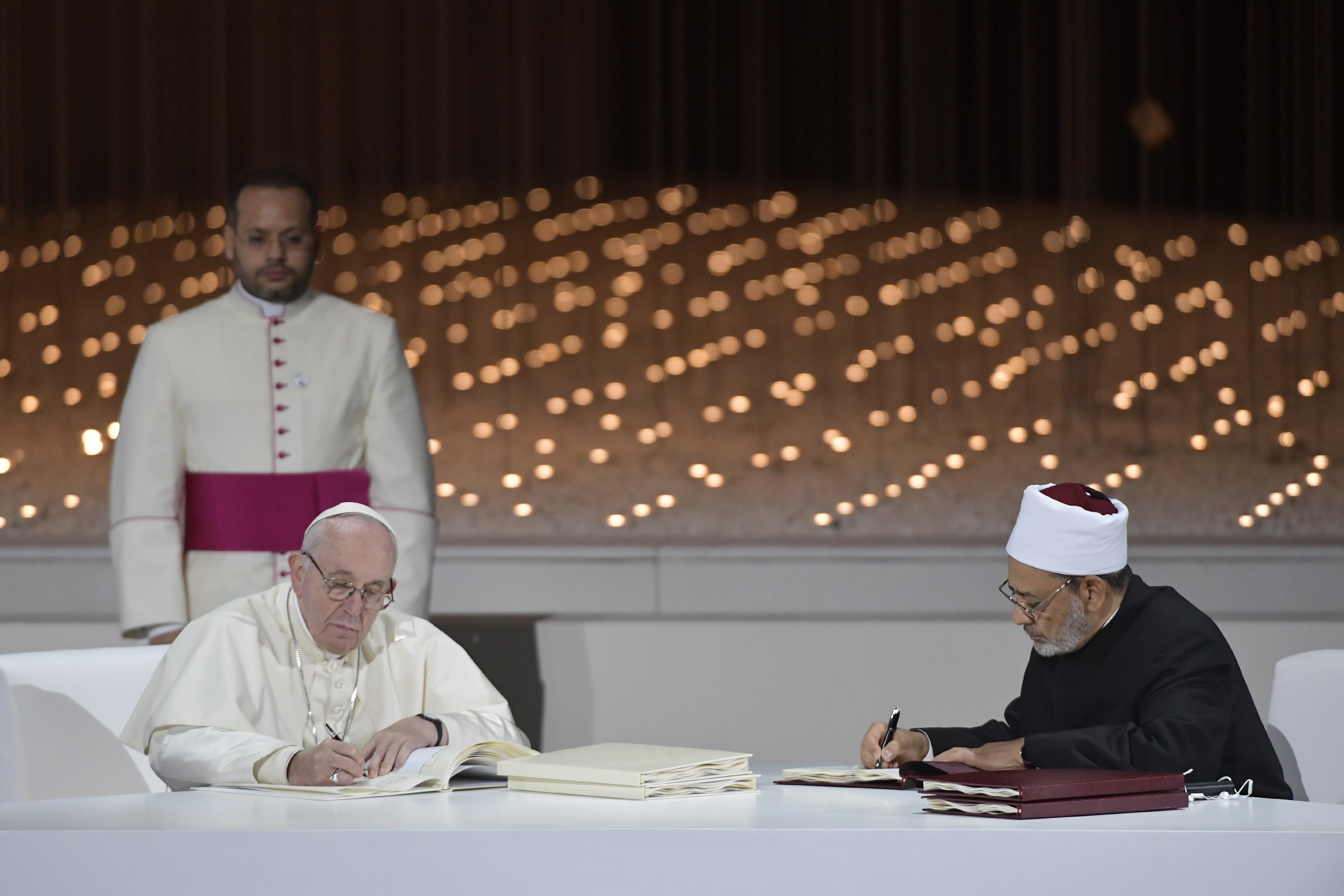
The Abu Dhabi document “is a landmark documents that lays the foundations for the fraternity of the faith community and of the whole human family.” “In Morocco, Pope Francis will continue his journey in the land of Islam and he will be welcomed with open arms.” An invitation: French Muslims invite the Pope to go to France because “they have special feelings of affection for him and the Pope has a special place in their hearts.” Anouar Kbibech is the Vice-President of the French Council of the Muslim Faith. He is one of 17 Muslim religious leaders in Europe members of the European Council of Muslim Sages, signatories of a joint statement in support of the Abu Dhabi Document released a few days ago. SIR contacted him by phone.
Let’s start with the “Document on Human Fraternity for World Peace and Living Together” co-signed by His Holiness Pope Francis and the Grand Imam of al- Azhar Ahmed el-Tayeb in Abu Dhabi. What do you think of this text?
It’s a historic document in all respects, signed by two high religious authorities, Pope Francis for the Catholic Church and the Grand Imam of al-Azhar representing the Muslim faithful. The document is destined to lay the foundations of human fraternity. There are three growing circles of fraternity. There is the fraternity between believers of the same faith; fraternity between believers of monotheistic religions and finally, the fraternity of the entire human family.
This Document enables Christians and Muslims to extend beyond the first circle comprising fraternity between faithful of the same religion and reach out to the fraternity between the believers of other faiths, Christians, Muslims and Jews.
In this respect, the Pope’s visit to the Arabian peninsula the signing of this Document are very powerful signs: they show that Pope Francis has arrived in this land presenting himself to the Muslim world as a brother. I also believe that this document has an even greater scope because it lays the foundations of human fraternity. This is fundamental and extremely important in the light of our present times and the climate we are experiencing today. In fact, on the one hand we are faced with a moral and social crisis that extends across our societies, while on the other we are witnessing an economic and political crisis at global level.
 The Document presents clear principles for coexistence. What role can be played by religions?
The Document presents clear principles for coexistence. What role can be played by religions?
Yes, it’s true… This Document highlights many tenets and values that are rooted in religions. In this specific case it highlights the values rooted in Christianity and Islam. Respect for our fellow other, the recognition of freedom of conscience and religion, equal respect for all human beings and equality between men and women, the rejection of all forms of violence and the strong condemnation of terrorism. These are important values that we must never stop recalling in our present times. Unfortunately, a number of acts of terrorism today – acts of violence and hatred – are committed in the name of religion, and in particular in the name of the Muslim religion. Thus these principles and values that are shared by humankind, by religions and by humanism, should be constantly reaffirmed. Religions can act as peace-builders.
At the end of March Pope Francis will travel to Morocco, another Country with a Muslim majority population. The Pope will also visit the Mohammed VI Institute for the Training of Imams based in Morocco and from Arab, African and European Countries. You are of Moroccan extraction. What was your reaction to this news? All of these meetings have very strong symbolic value. We just witnessed the first visit by a Pope in the Arabian peninsula, in Islamic land. The Pope wished to undertake this journey to bring a message of support to Christians in the Middle East and to the fraternal relations between Christians and Muslims. The visit to Morocco is part of this fraternity journey. We cherish the memory of the historic visit of Saint John Paul II to Morocco in 1985 on the invitation of King Hassan.

A meeting in the Casablanca stadium took place attended by Christian and Muslim believers who joined in a great moment of communion. The visit of Pope Francis has a high symbolic meaning:
in Morocco the Pope will return to the land of Islam where he will bring a message of fraternity and peace.
He was invited by King Mohamed VI. This is a very powerful sign that highlights the standing of Pope Francis and his commitment for interreligious dialogue and fraternity between different religious communities. Muslim faithful will welcome him with open arms.
 If you had the opportunity to meet Pope Francis, what would you tell him?
If you had the opportunity to meet Pope Francis, what would you tell him?
I was received in audience by Pope Francis in Rome in November 2016 with a delegation of the French Council of the Muslim Faith. On that occasion we conveyed to him our utmost gratitude for his reiterated words of peace and for his strong and firm stands against undifferentiating the Islamic religion from acts of terrorism. The Pope has always said in clear words that there is no such thing as “Islamic terrorism” because the two terms – terrorism and Islam – are antithetical. The same goes for all world religions. We were deeply touched by this strong stand of Pope Francis. We told him this and we invited him to France to meet French Muslims, who have special feelings of affection for him.
Pope Francis has a special place in the heart of the Muslims of France.










